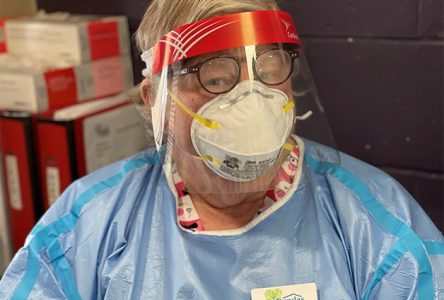CORNWALL, Ontario – Could a less-is-more approach be the solution to shorter wait times at the Cornwall Community Hospital?
Choosing Wisely Canada (CWC) is a national campaign which hopes to minimize unnecessary care, thus reducing issues like overcrowding and long wait times.
Dr. Lorne Scharf is the Chief of Staff and emergency physician at the Cornwall Community Hospital, and says that unnecessary treatments are a huge issue, impacting every sector of Canadian healthcare.
“It’s common to want to do more, and to test more,” said Scharf. “However, evidence shows it’s actually harmful.”
The Canadian Institute for Health Information (CIHI) recently released a study, showing that Canadians undergo over one million unnecessary medical tests and treatments per year. Scharf says that while this isn’t a sustainable practise, it highlights some room for improvement within the healthcare industry.
“There’s a number of reasons why this keeps happening,” said Scharf. “But the bottom line is that it drains us of resources which could be better spent elsewhere.”
Scharf says that more tests do not necessarily lead to better health, and unless testing is needed, there’s nothing wrong with the use of other strategies. Since the launch of Choosing Wisely Canada in April 2014, clinicians have been actively trying to incorporate these strategies into their practises.
In cases such as a minor head injury, clinical staff are encouraged to avoid CT scans where possible. However, Scharf says he doesn’t think that this inhibits staff from making an accurate diagnosis.
“Unnecessary CT scans produce a lot of work and a lot of time in the hospital,” said Scharf. “If it has to be done, it has to be done – but there’s a lot we can tell about a patient through a simple physical examination.”
Scharf says that part of CWC’s mandate is opening up a dialogue with patients about tests and treatments not supported by evidence, which could potentially expose patients to unnecessary harm.
“It’s a tool to help us talk to people as well,” said Scharf. “It’s enabled patients and providers to have conversations about care they are asking for.”
For more information about Choosing Wisely Canada, check out their website.



